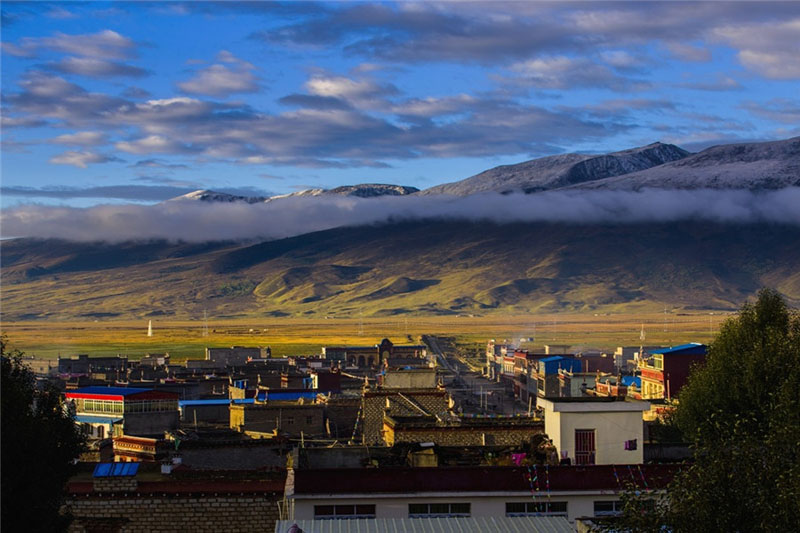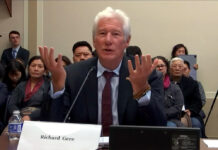
(TibetanReview.net, Jun12’20) – The fact that China bars Tibetans from government jobs if they are perceived to be anti-China for reasons ranging from participating in alleged “separatist activities” to simply being from a family whose members had “exited the country illegally” is all too well known. In a latest instance of the implementation of this policy, a combined May 25 announcement for “Public Recruitment of Police Auxiliary Personnel” issued by eight departments in Lithang County in Sichuan Province had listed such disqualifying conditions for recruits, said Washington-based International Campaign for Tibet (ICT) Jun 11.
These were stated to include: “Participating in, supporting, or funding for ethnic separatist activities; participating in or supporting illegal activities such as hitting, smashing, looting, and arson; sheltering, hiding or conniving with all kinds of illegal persons; fabricating and spreading rumors and false information that undermine social stability; participating in and supporting illegal activities such as demonstrations, rallies, gathering, and protests that are related to ethnic splitting and sabotage activities.”
China labels all forms of protest by Tibetans against its policies and atrocities as separatist, even if they had nothing to do with demand for independence. It also considers Tibetans calling for respect for their linguistic heritage or ethnic identity or who merely possesses a picture of the Dalai Lama, Tibet’s exiled spiritual leader, a separatist.
ICT has listed the eight departments that coordinated in making the May 25 announcement as the Lithang County Discipline Inspection Committee, Lithang County Organization Department, Lithang County Political and Legal Committee, Lithang County Human Resources and Social Security Bureau, Lithang County Finance Bureau, Lithang County Education and Sports Bureau, Lithang County Health Development Bureau, and the Lithang County Public Security Bureau.
Lithang is a historically well-known region of Tibet’s Kham province but has been made of Sichuan Province under Chinese occupation rule.
ICT noted that Kardze Prefecture, to which Lithang belongs, had used exactly the same formulation in a 2017 announcement for recruiting auxiliary police personnel for the prefecture. Auxiliary police personnel are usually part-time reserves of a regular police force.
More recently, an announcement on May 2, 2020 for police recruitment by the Dabpa (Chinese: Daocheng) County People’s Court in Kardze Prefecture was reported to have said that in addition to the conditions in the Lithang announcement, “[t]hose who have received or are receiving subsidies from illegal overseas fund organizations” were disqualified.
ICT also said that in Lhoka (Chinese: Shannan) City in Tibet Autonomous Region (TAR) in Dec 2019, an announcement for a similar recruitment barred candidates who or whose family members had “illegally entered or exited the country”. It required candidates to undergo a “political review” in accordance with the “Interim Provisions on the Public Security Organs’ Employment of the People’s Police for Political Review.” Under it, the unit where the applicant was registered, his neighborhood committee, his township police station, or his county public security bureau had to fill in the political review opinions and stamp it with the official seal.
In addition, an announcement of the TAR government in 2018 for the recruitment of police personnel from among auxiliary police was also stated to mention that candidate had to “stand firm on and have a clear-cut understanding of the political principles against separatism, exposing and criticizing the Dalai, safeguarding the motherland’s reunification and national unity.”
On the other hand, announcements for similar police recruitments in Hebei, Shandong, and Qinghai provinces as well as Guangxi prefecture disqualified candidates only if they or their family members had participated in “illegal organizations, cults, or engag[ing] in other activities that endanger national security” as one of the disqualifying conditions.





